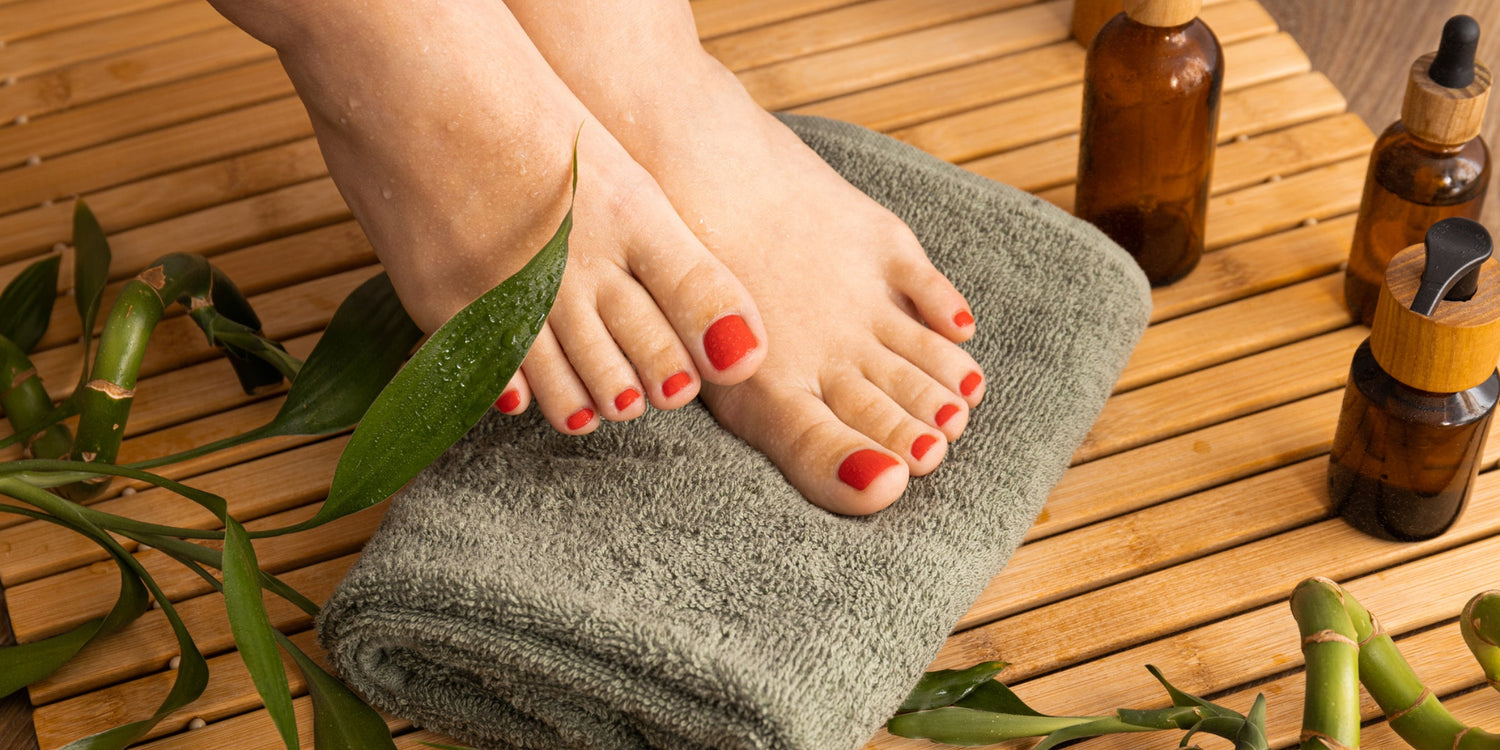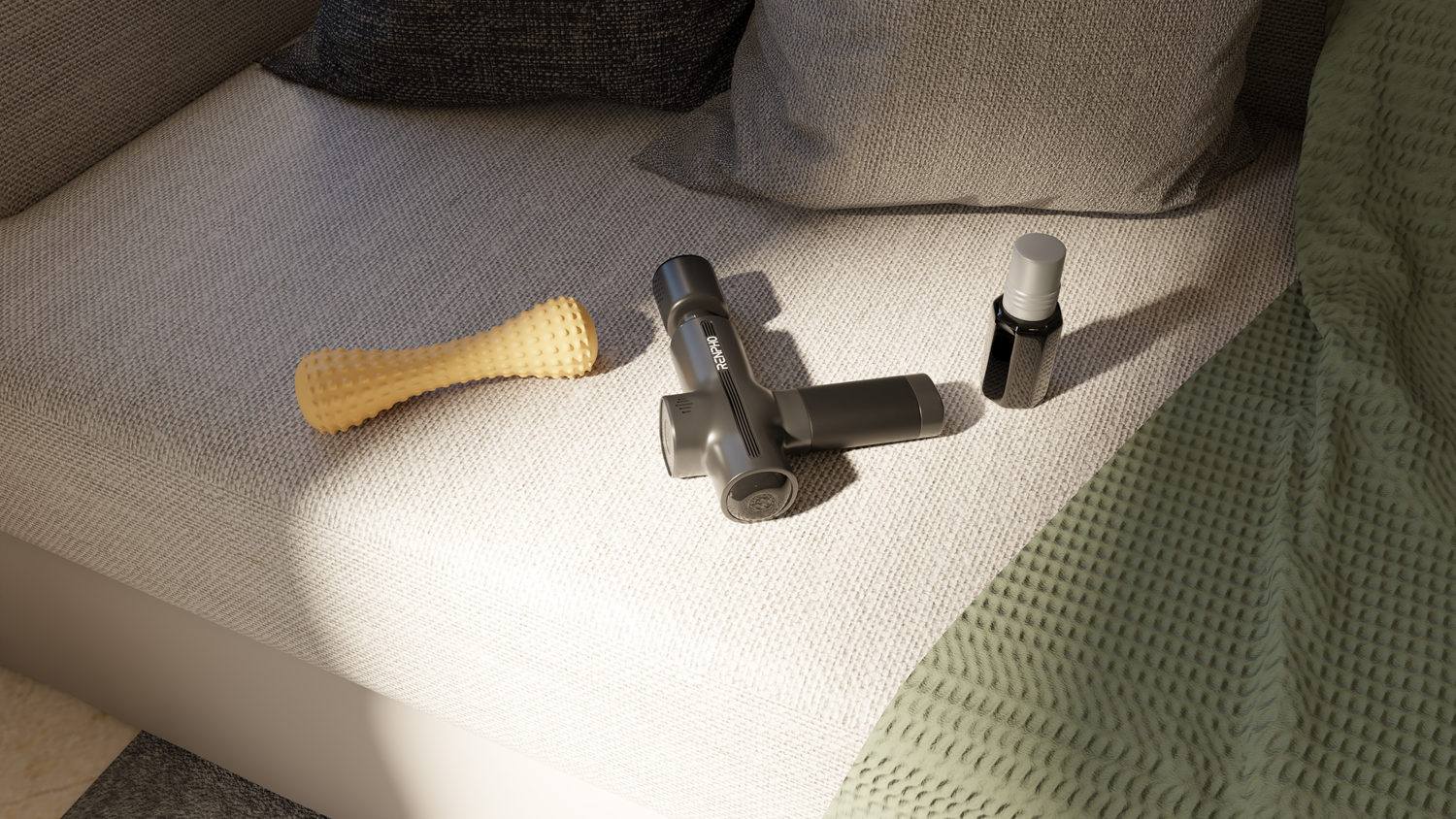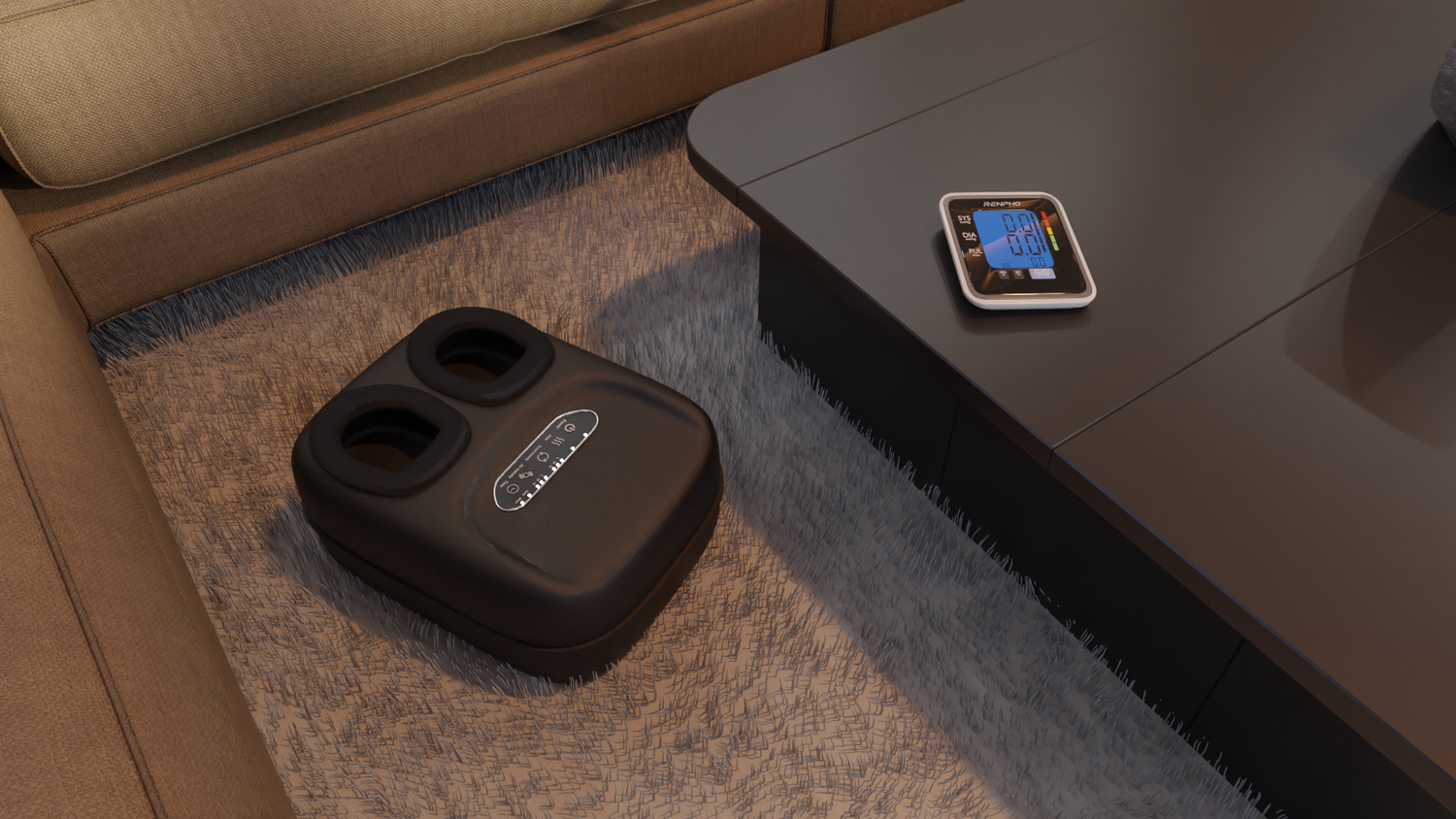Pregnancy is a beautiful journey, albeit accompanied by its fair share of discomforts and aches. Thankfully, foot massages have emerged as a safe and effective way to alleviate some of the common discomforts associated with this period.
With that said, let’s explore the numerous benefits of foot massages during pregnancy and provide you with practical advice on how to incorporate them into your self-care routine. Whether you're experiencing swollen feet, achy muscles, or simply seeking a moment of relaxation amidst the demands of pregnancy, this guide is here to provide you with the knowledge and tools to make foot massages a part of your prenatal care routine.
So, sit back, put your feet up, and let's embark on this journey together as we uncover the wonders of foot massages during pregnancy. Get ready to indulge in some much-needed self-care and discover the incredible benefits that await you.
Why Should You Consult a Massage Therapist for Pregnancy?

Consulting a massage therapist trained specifically for pregnancy is crucial because they provide safe and effective care for expectant mothers. Pregnancy brings about a range of physical changes and discomforts, and having a professional therapist can address specific conditions such as lower back pain, sciatic nerve pain, swelling, and joint pain with informed guidance.
Much like a regular massage, pregnancy massage offers numerous benefits, including reducing stress, promoting relaxation, easing muscle tension, and improving overall well-being. A specialized therapist can provide tailored care that considers the unique needs and concerns of pregnant women, ensuring a safe and comfortable experience.
Physical symptoms of pregnancy that can be alleviated with a pregnancy massage include muscle soreness, headaches, insomnia, and anxiety. The timing and technique of the massage are also important considerations, as certain pressure points and techniques should be avoided during different stages of pregnancy to ensure the safety of both mother and baby.
What Makes Prenatal Foot Massages Different from Their Regular Counterpart?

Prenatal foot massages differ from regular foot massages in several ways. When catering to pregnant individuals, specific needs and concerns must be taken into consideration. For example, this particular foot massage focuses on relieving the discomfort and issues commonly experienced during pregnancy, such as swollen feet and ankles, joint pain, and poor circulation. The techniques used are modified to ensure the safety and comfort of the expecting mother and her baby.
One of the unique benefits of prenatal foot massages is their ability to reduce swelling, which is a common concern during pregnancy. By targeting specific pressure points and using specialized techniques, prenatal foot massages help to improve circulation and decrease fluid retention in the feet and ankles. Additionally, these massages can alleviate joint pain and provide overall relaxation and comfort for pregnant individuals.
In contrast, regular foot massages might not account for the specific needs of pregnant individuals and may not utilize the appropriate techniques to address their concerns. Therefore, it is important for expectant mothers to seek out qualified massage therapists who are trained in prenatal foot massage to ensure a safe and beneficial experience.
What Are the Benefits of Foot Massages During Pregnancy?

Foot massages during pregnancy offer a variety of benefits that can contribute to overall physical and emotional well-being. Here are some of the key advantages:
-
Alleviating Joint Pain and Muscle Tension
During pregnancy, foot massages offer significant benefits in alleviating joint pain and muscle tension. As the body undergoes physical changes and carries the extra weight, it is common for pregnant women to experience discomfort in their joints and muscles.
Foot massages can effectively address these issues by improving blood circulation and lymphatic flow, which helps reduce inflammation and relieve joint pain. The gentle pressure and kneading motions applied during foot massages also help relax the joints, easing any stiffness or discomfort.
Moreover, foot massages target specific pressure points and muscle groups in the feet and lower legs, releasing tension throughout the body. By targeting these areas, they can effectively reduce muscle tightness and soreness, providing much-needed relief for expectant mothers.
Additionally, regular sessions can improve flexibility and range of motion in the feet and lower limbs, which is particularly beneficial during pregnancy when hormonal changes can lead to tighter ligaments and muscles. By incorporating foot massages into their routine, pregnant women can maintain or improve flexibility, alleviate joint pain, and enhance overall mobility.
Furthermore, foot massages can help correct postural misalignments caused by the changing body, promoting better alignment and reducing discomfort.
-
Improving Blood Flow and Reducing Swelling in the Feet and Ankles
One of the benefits of foot massages during pregnancy is the improvement of blood flow and reduction of swelling in the feet and ankles. Pregnancy often leads to increased fluid retention and swelling, known as edema, particularly in the lower extremities.
Fortunately, foot massages can help stimulate blood circulation, facilitating the removal of excess fluid, and reducing swelling. The gentle pressure and kneading techniques applied during a foot massage help to enhance the movement of blood and lymphatic fluid, preventing fluid buildup in the feet and ankles.
By improving blood flow, foot massages also ensure that oxygen and nutrients are efficiently delivered to the tissues, supporting overall foot and ankle health. This can be particularly beneficial during pregnancy when the weight of the baby puts added pressure on the lower extremities.
Reducing swelling not only enhances physical comfort but also helps to alleviate common discomforts such as tight shoes, aching feet, and difficulty in walking or standing for extended periods.
-
Promoting Relaxation and Reducing Stress Levels
Pregnancy can be accompanied by heightened stress and anxiety due to hormonal changes, physical discomfort, and the anticipation of becoming a parent.
To address these challenges, foot massages provide a calming and soothing experience, helping pregnant women unwind and alleviate stress. The gentle kneading and massaging of the feet stimulate nerve endings, which can trigger the release of endorphins, the body's natural feel-good hormones. This natural release of endorphins induces a sense of relaxation, improves mood, and reduces stress.
Additionally, foot massages create a dedicated time and space for self-care and nurturing. Taking the time to focus on oneself and indulge in a foot massage can have a positive psychological impact, allowing pregnant women to recharge and rejuvenate.
By promoting relaxation and reducing stress levels, foot massages during pregnancy contribute to a more balanced emotional state and improved overall mental health.
Note: While foot massages can be a valuable tool for relaxation, pregnant women should consult with their healthcare provider before incorporating them into their routine. This ensures that the massages are safe and appropriate based on individual circumstances and any specific considerations related to the pregnancy.
What Are the Risks and Precautions You Should Know About Prenatal Foot Massages?

Prenatal foot massages can offer relief from aches and pains commonly experienced during pregnancy. However, there are risks and precautions to consider before scheduling a foot massage.
Risks:
- Excessive pressure may stimulate uterine contractions.
- Manipulating certain reflexology points can potentially induce labor.
- Vigorous massage on sensitive areas can cause discomfort.
- If you have underlying medical conditions, consult your healthcare provider.
Precautions:
- Communicate your comfort level to the massage therapist.
- Avoid reflexology or consult a qualified prenatal reflexologist.
- Inform the therapist about any discomfort or pain during the massage.
- Consult your healthcare provider if you have medical conditions.
- Ensure the massage environment is clean and hygienic.
When Should You Avoid Prenatal Foot Massages?

Pregnant women with specific conditions should avoid prenatal foot massages to prevent potential risks and complications. Individuals experiencing high-risk pregnancies, preeclampsia, or deep vein thrombosis should refrain from receiving foot massages during pregnancy.
For women with high-risk pregnancies, including conditions like gestational diabetes or hypertension, receiving foot massages could potentially exacerbate their existing health concerns and lead to further complications. Prenatal foot massages may also present risks for women with preeclampsia, a condition characterized by high blood pressure and damage to organs, as the stimulation of certain pressure points in the feet could potentially worsen their symptoms. Additionally, pregnant women with deep vein thrombosis, a condition where blood clots form in deep veins, should avoid foot massages as it may potentially dislodge blood clots and lead to serious health complications.
In these specific cases, prenatal foot massages could lead to potential risks such as increased blood pressure, worsened symptoms of preeclampsia, and dislodging of blood clots, which can lead to serious complications for both the mother and the unborn baby. Therefore, it is crucial for pregnant women with high-risk pregnancies, preeclampsia, and deep vein thrombosis to avoid prenatal foot massages to ensure their safety and well-being.
Takeaway
Pregnancy is a beautiful journey, but it can come with discomforts. Fortunately, foot massages are a safe and effective way to alleviate common pregnancy discomforts. They can reduce joint pain, muscle tension, swelling, and promote relaxation.
However, it's important to consult a massage therapist trained in prenatal care for tailored treatment. Otherwise, there are risks and precautions that can worsen your existing issues or create new ones. Always consult with a healthcare provider before incorporating foot massages into your prenatal care routine.
Renpho Health Tips
-

Pamper Your Feet with These 5 Amazing Benefits of Foot Spa
February 26, 2024
Read more >
-

DIY Foot Reflexology: 5 Simple Techniques for Home Practice
February 21, 2024
Read more >
-

When Foot Reflexology Hurts: A Closer Look at the Discomfort
February 15, 2024
Read more >
-

A Surprising but Welcome Link: Can Foot Massage Lower Blood Pressure
February 1, 2024
Read more >
-

The Pomodoro Technique: Maximizing Focus and Efficiency in Work and Fitness
January 30, 2024
Read more >




































